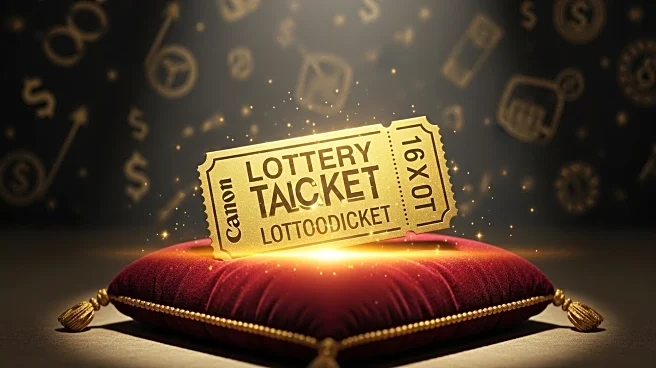What's Happening?
The Powerball jackpot has reached an estimated $1.8 billion, marking the second-largest prize in U.S. lottery history. The drawing is scheduled for Saturday night, with the odds of winning the grand prize being approximately 1 in 292 million. Winners have the option to choose between a lump sum payment of $826.4 million or an annuity worth $1.80 billion, paid over 30 years. However, the winner will face substantial tax obligations, including a mandatory 24% federal withholding for prizes exceeding $5,000, which amounts to roughly $198.3 million.
Why It's Important?
The massive jackpot highlights the allure and financial implications of lottery winnings in the U.S. While the potential windfall is significant, the tax obligations underscore the complexities involved in managing such a large sum. The winner's decision between a lump sum and annuity can have long-term financial consequences, affecting their tax liabilities and investment strategies. The event also draws attention to the role of lotteries in generating revenue for states and the impact on public policy regarding gambling and taxation.
What's Next?
The upcoming Powerball drawing will determine the winner of the $1.8 billion jackpot, potentially leading to significant media coverage and public interest. Financial advisors and tax experts may offer guidance to the winner on managing their newfound wealth and navigating tax obligations. The event may also prompt discussions on the broader implications of lottery winnings, including the social and economic effects on individuals and communities.
Beyond the Headlines
The Powerball jackpot raises questions about the ethical considerations of lotteries and their impact on society. While they provide entertainment and revenue for states, lotteries can also contribute to gambling addiction and financial strain for participants. The event may spark debates on the balance between state revenue generation and responsible gambling practices.









